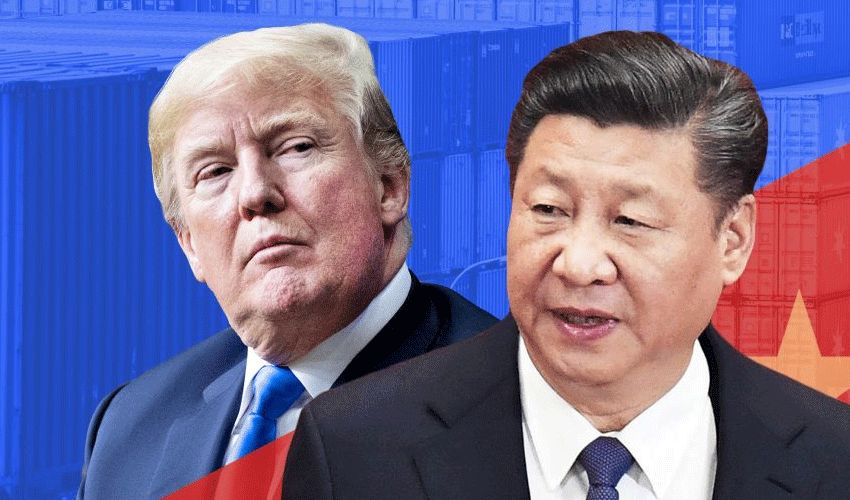US President Donald Trump has provided the first substantial details of a proposed US cryptocurrency strategic reserve, revealing that the stockpile would include Bitcoin, Ethereum, and a selection of smaller digital tokens.
The announcement comes months after Trump signed an executive order in January to establish a digital asset working group tasked with exploring the feasibility of a strategic Bitcoin reserve.
The group has been directed to submit a report by July outlining criteria for the reserve, potentially utilizing cryptocurrency assets seized by US law enforcement agencies.
In a post on Truth Social on Sunday, Trump specified that the reserve would hold smaller tokens such as XRP, Solana, and Cardano alongside Bitcoin and Ethereum, which he described as the "heart of the Reserve."
However, no explanation was provided for the inclusion of the additional cryptocurrencies.
Strategic reserve for digital assets
Strategic reserves are stockpiles of critical resources maintained by governments to stabilize markets in times of crisis or supply disruptions.
The US already maintains the Strategic Petroleum Reserve, the world’s largest emergency crude oil stockpile, which was established in 1975 in response to the 1973-74 Arab oil embargo.
Other countries also maintain reserves of essential commodities. Canada, for instance, has a strategic maple syrup reserve, while China stockpiles metals, grains, and pork products.
The proposed cryptocurrency reserve would be an unprecedented move, marking the first time a major economy formally integrates digital assets into a national strategy.
How would reserve work?
The precise mechanism for establishing the reserve remains unclear. The working group is reportedly assessing whether it can be built using cryptocurrency confiscated through law enforcement efforts. According to data from BitcoinTreasuries.net, the US government currently holds approximately 198,109 Bitcoin—valued at around $18.5 billion—primarily seized in criminal investigations. However, the legal framework required to transfer these holdings from the Justice Department to a federal reserve remains uncertain.
Trump has not indicated whether the US government plans to acquire additional cryptocurrency through open-market purchases. His executive order also does not specify how the reserve would be funded or maintained.
Congressional proposals and state initiatives
One of the most detailed proposals for a Bitcoin reserve has come from pro-crypto Republican Senator Cynthia Lummis, a vocal advocate of digital assets who personally owns five Bitcoin.
In July, Lummis introduced a bill—yet to gain significant traction—that proposes a Treasury-managed reserve. Under her plan, the Treasury would purchase 200,000 Bitcoin annually over five years, eventually accumulating one million Bitcoin, or roughly 5% of Bitcoin’s total 21-million supply. The purchases would be financed through profits from Federal Reserve bank deposits and gold holdings, and the reserve would be maintained for at least 20 years.
At the state level, lawmakers in 24 US states have introduced legislation to establish their own Bitcoin reserves. However, such efforts have faced setbacks, with four states—including Lummis’ home state of Wyoming—failing to pass the necessary legislation.
Potential benefits of bitcoin reserve
Trump has framed the strategic reserve as a tool to bolster US dominance in the global digital asset market, particularly as China strengthens its foothold in the cryptocurrency space.
Supporters argue that by stockpiling Bitcoin, a digital asset often touted as an inflation hedge, the US could mitigate its fiscal deficit without resorting to tax increases. Senator Lummis has claimed that her proposal could help cut the national debt in half over two decades.
“A Bitcoin reserve protects us against inflation and strengthens the US dollar on the global stage,” Lummis said in an interview with Fox Business in November.
Proponents also suggest that maintaining a cryptocurrency reserve could provide the US with greater financial leverage against geopolitical rivals such as China and Russia.
Despite growing political support for the initiative, critics remain skeptical.
Unlike traditional commodities such as oil and gold, Bitcoin has no intrinsic use in the real economy, making its long-term value uncertain. Given its volatility, critics argue that any large-scale government purchases or sales could significantly impact its price. The effect would be even more pronounced for smaller tokens like XRP and Cardano, which typically have lower liquidity and trading volumes.
Another major concern is cybersecurity. Cryptocurrency reserves would be stored in digital wallets, which are susceptible to hacking. A breach could have significant financial and national security implications.


























